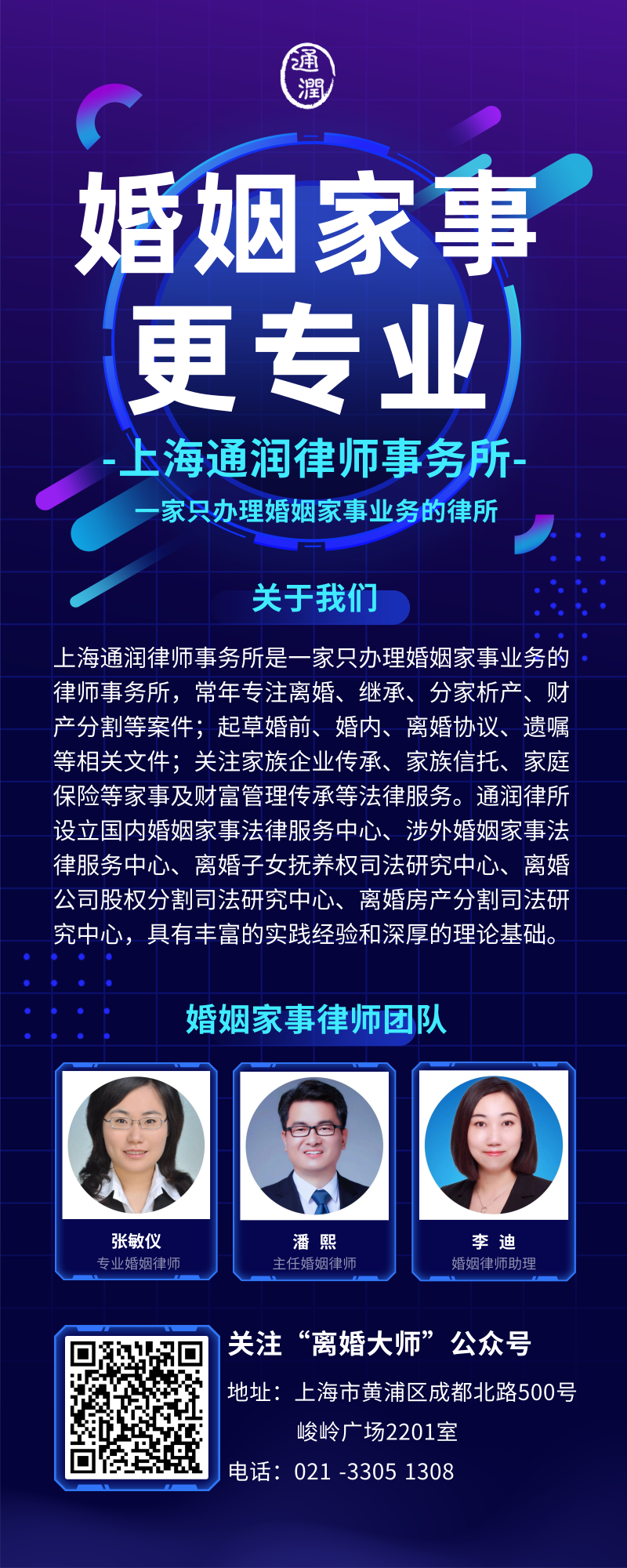内地代孕子女,“意愿父母”向香港法院申请确认亲权,获得香港法院支持
转载自:婚姻家庭与资本市场
一对夫妻A和B,向香港高等法院提出申请,要求确认其与代孕的双胞胎女儿之间的亲子关系。2019年10月14日,香港高等法院做出判决,支持了这对夫妻的请求,案号:HCMP 1571/2018 | [2019]HKCFI1749.
明月律师阅读了案例原文,并归纳如下:
这对双胞胎:精子来源于丈夫A,卵子来源于捐卵,由代孕母亲C分娩。代孕协议在内地签署,分娩在内地进行。双胞胎出生后,便由A和B在内地抚养,之后凭借受养人签证随父母AB来到香港。
本案为何能由香港法院管辖,是因为申请人“have been habitually resident in Hong Kong 1 year prior to the present”以及“have a substantial connection with Hong Kong because they have worked and lived in Hong Kong for over 10 years. A is a permanet resident of Hong Kong since 2016”.
如果严格按照香港法律,分娩母亲C才是法律意义上的母亲,C的丈夫才是法律意义上的父亲(除非其事先不同意C代孕),本案在香港并无先例,法院判决的说理还是非常全面详尽的。
本案中,法庭为分娩母亲C指定了法律援助律师(Official Solicitor),C通过Official Solicitor确认其已经放弃全部亲权(Relinquish all her parental right),并对A和B的申请无任何异议。
香港法律把Parental order定义为“an order providing for a child to be regarded in law as the child of the parties to a marriage”,面对委托父母(AB)与C,Parental order的确认是严肃的,因为这样的判决不仅关切到孩子成年前的抚养安排,更是具有far-reaching, life-long, implications for the child, his/her surrogate mother or the commissioning parents. It has transformative effect on the legal relationship between the child and the commissioning parents. It confers legal identity and status on the child, and defines whose child he/she is and the family to which the child belongs. It is irreversible for the surrogate mother, the commissioning parents and the child. It has implicaitons extending far beyond the merely legal. 归纳而言,亲权判决,并非仅是抚养判决,一判终决,判决效力贯穿孩子一生,对于委托父母、代孕父母、孩子而言,都是意义深远的,是不可逆的。
在法庭公开的判决书中,我们看到了杨立新教授的专家意见,明月律师摘抄如下:
Firstly, surrogacy was and is not prohibited in the manland. However, there was and is no legislation governing surrogacy or rights of children born out of surrogacy. In December 2015, there was a draft provision to the amendment bill to the Population and Family Planning Law Act(人口和计划生育法) suggesting prohibition on surrogacy. However, after deliberations, Standing Committee of the National People's Congress(NPCSC) decided against incorporation of that draft provision.
Secondly, the Management of Human Assisted Reproduction Tcchnology Rules(人类辅助生殖技术管理办法) issued by the Ministry of Health in 2001 prohibit medical institutions and their staff from carrying out, amongst others, any surrogacy arrangements, and sale and purchase of gametes. The Rules are administrative rules that did not and do not restrict the civil rights of the people. Nor do the Rules bind patrons of those medical institutions like the Applicants in the present case.Contravention of the Rules did not and do not attract criminal consequences but penalties like a fine or administrative punishment may be imposed.
This proposition was supported by a judgment of the Wuxi Intermediate People’s Court [(2014) 錫民終字第 01235 號], which concerned rights to human embryos. There, a married couple caused the embryos (created using the sperm of the husband and ovum of a female donor) to be stored in a hospital and agreed to have the embryos discarded after the agreed period of storage. Unfortunately, the couple died in an accident. The parents of the couple claimed for those embryos. The hospital relied on the Rules which barred surrogacy arrangement and sale and purchase of embryos. The Wuxi IPC held that the hospital could not rely on ministerial rules to restrict civil rights. The Wuxi IPC granted custody and right of disposal of the embryos to the parents of the couple.
Thirdly, whilst the Mainland Courts have not directly ruled on the legality of a surrogacy arrangement, it appears that the Mainland Courts did recognize a child born out of surrogacy pursuant to the agreement of a married couple as a child of the marriage, even though only one party to the marriage was biologically linked to the child.
In 1991, the Hubei Higher People’s Court submitted a request for ruling on the legal status of a child born out of artificial insemination after divorce of a couple. The child was not biologically linked to the husband. On 8 July 1991, by a judicial explanation known as 《关于夫妻关系存续期间以人工授精所生子女的法律地位的函》, the SupremePeople’s Court held that during the subsistence of a marriage, if both parties agreed to IVF, children born out of that process shall be viewed as children born out of that marriage; the Marriage Act governing the rights, obligations and relationship between parents and children shall apply (“the SPC Explanation”). The SPC Explanation stands till today.
In (2015) 滬一中少民終字第 56 號, Luo and Chen were married. They got children out of a surrogacy arrangement involving use of the Luo’s sperms and the eggs of a donor. After the death of Luo, his parents sued Chen for custody of the children. The Shanghai First Intermediate People’s Court applied the SPC Interpretation. It held that the dispute was not about the legality of a surrogacy arrangement but the custody rights over the children born out of that arrangement. Such children had the same protection as children born out of wedlock, born naturally or through human assisted reproduction means. Treating welfare of the children as of paramount importance, the Court granted Chen custody as a de facto step-mother.
归纳:杨立新教授的专家意见得到了法庭的采纳,法庭判决确认了A和B(作为委托父母、意愿父母)与双胞胎女儿之间的亲子关系。
思考:明月律师认为,在香港法院案例中,核心还是生育合意,真正具有生育合意的是A和B,而非C。在越来越多的涉代孕亲子关系、监护案件中,分娩说、基因说都不靠谱,唯有生育合意(结合儿童最佳利益)才是司法裁判所应参考的更高的价值维度。正如杨教授所言,内地夫妻代孕子女与其他婚内子女在权利义务方面并无差别。目前存在司法障碍的,是同性伴侣涉代孕亲子关系、监护案件。在这些案件中,生育合意(结合儿童最佳利益)能否突破认知的藩篱,尚待司法检验。
